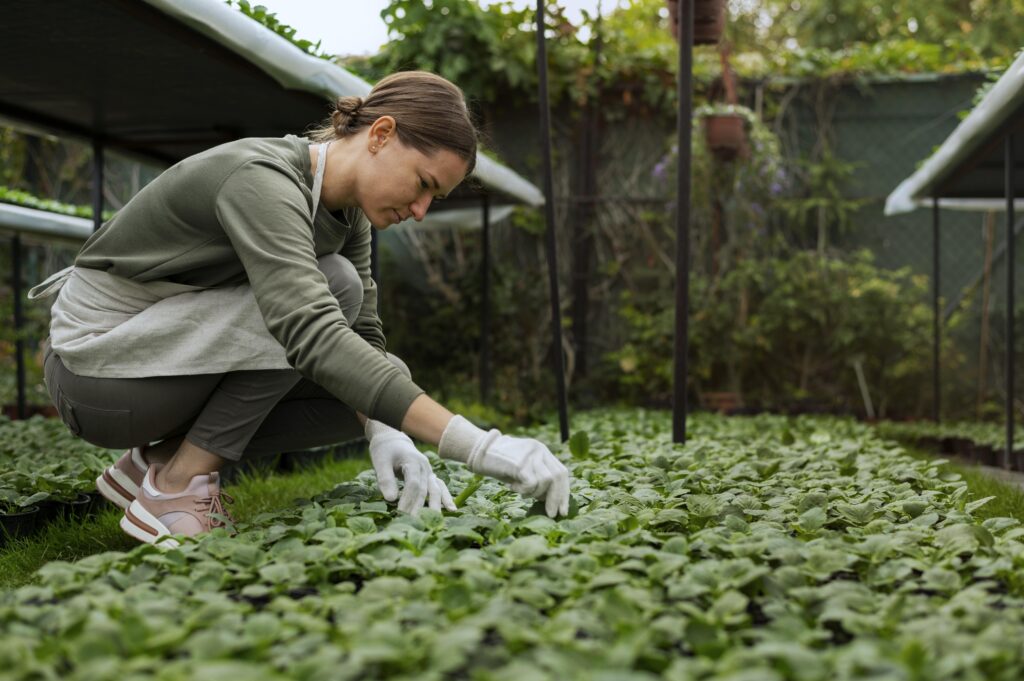Introduction
arugula researcher at cambridge, known scientifically as Eruca sativa, has long been a staple in Mediterranean cuisine, prized for its peppery flavor and nutritional benefits. However, beyond its culinary appeal, arugula has garnered significant attention in scientific circles, particularly at the University of Cambridge. Researchers there are delving deep into the plant’s genetic makeup, health benefits, and potential applications in sustainable agriculture.
Nutritional Powerhouse: The Health Benefits of Arugula
arugula researcher at cambridge is more than just a flavorful green; it’s a nutritional dynamo. Rich in vitamins K, C, and folate, as well as minerals like calcium and potassium, arugula supports bone health, immune function, and cardiovascular wellness. Its high antioxidant content, including glucosinolates and flavonoids, contributes to its anti-inflammatory and potential cancer-preventive properties .
Cambridge researchers are particularly interested in how these compounds interact within the human body. By mapping arugula’s phytochemical profile, they aim to understand its role in reducing oxidative stress and combating chronic diseases. This research could pave the way for dietary recommendations and functional foods centered around arugula.

Climate Resilience: Arugula’s Role in Sustainable Agriculture
As climate change poses challenges to global agriculture, arugula researcher at cambridge arugula emerges as a resilient crop. Its ability to thrive in diverse conditions makes it a candidate for sustainable farming practices. The Cambridge team is studying the genetic traits that enable arugula to withstand pests, diseases, and extreme weather, aiming to develop strains that can adapt to changing climates .
Moreover, arugula’s rapid growth and low input requirements make it suitable for urban farming and regenerative agriculture. By integrating arugula into crop rotation systems, researchers hope to improve soil health, reduce reliance on chemical fertilizers, and promote biodiversity.
Genetic Exploration: Decoding Arugula’s Genome
Understanding arugula researcher at cambridge at the genetic level is crucial for enhancing its beneficial traits. Cambridge scientists are involved in decoding the arugula genome, identifying genes responsible for nutrient content, flavor, and stress resistance. This genomic research facilitates targeted breeding programs aimed at producing superior arugula varieties .
Through biofortification, arugula researcher at cambridge researchers aspire to increase arugula’s nutritional value, making it an even more potent health food. Additionally, genetic insights can lead to the development of arugula strains better suited for various agricultural systems, from traditional fields to hydroponic setups.
Innovative Applications: From Kitchen to Medicine
arugula researcher at cambridge potential extends beyond the salad bowl. Cambridge researchers are collaborating with food scientists to explore its use in functional foods, such as smoothies and teas, leveraging its health-promoting compounds. Its natural antimicrobial properties are also being investigated for food preservation purposes .
In the medical realm, arugula shows promise. Studies suggest its bioactive compounds may aid in cancer prevention, heart health, and bone strength. arugula researcher at cambridge For instance, its high calcium and vitamin K content are beneficial for osteoporosis prevention. These findings open avenues for arugula-based supplements and therapeutic applications.
Environmental Impact: Arugula in Eco-Friendly Farming
Integrating arugula researcher at cambridge into sustainable farming systems could have positive environmental effects. Its role in carbon sequestration and water conservation is under examination, with researchers assessing how arugula cultivation impacts ecological balance. By promoting practices that include arugula, agriculture can move towards more environmentally friendly models .
Furthermore, arugula’s adaptability makes it a suitable candidate for vertical farming and urban agriculture, reducing the carbon footprint associated with food transportation and supporting local food systems.
Historical and Cultural Significance of Arugula
arugula researcher at cambridge history is as rich as its flavor. Cultivated since Roman times, it was once considered an aphrodisiac and was even banned in some monasteries during the Middle Ages due to its reputed effects. Despite this, it remained a popular herb, listed among the 63 pot herbs suitable for gardens in a decree by Charlemagne .
In modern times, arugula continues to be a beloved ingredient in various cuisines, from Italian to Middle Eastern. Its cultural significance underscores the importance of preserving and studying traditional plants that have nourished societies for centuries.
Arugula’s Role in Modern Diets and Culinary Innovation
The culinary versatility of arugula researcher at cambridge is undeniable. Its distinct taste enhances salads, pizzas, and pasta dishes. Beyond traditional uses, chefs and food innovators are incorporating arugula into new creations, such as arugula-infused oils and sauces, expanding its presence in contemporary cuisine.
Cambridge’s research into arugula’s flavor compounds and nutritional profile supports these culinary explorations, providing scientific backing for its inclusion in health-conscious and gourmet dishes alike.
Future Prospects: Arugula in Global Food Security
As the global population grows, arugula researcher at cambridge ensuring food security becomes paramount. Arugula’s fast growth cycle and adaptability position it as a valuable crop in addressing food shortages. Its cultivation requires fewer resources, making it accessible for small-scale farmers and suitable for areas with limited agricultural infrastructure.
Cambridge researchers are exploring how arugula can be integrated into global food systems, particularly in regions facing food insecurity. By promoting arugula cultivation, they aim to contribute to a more resilient and nutritious food supply.
Conclusion:
The University of Cambridge’s comprehensive research into arugula highlights the plant’s multifaceted value. From its impressive nutritional profile and arugula researcher at cambridge environmental benefits to its cultural significance and potential in global food security, arugula stands out as a remarkable leafy green.
As scientific exploration continues, arugula may well become a cornerstone in sustainable agriculture and health-focused diets worldwide. Embracing its full potential could lead to advancements in nutrition, medicine, and environmental stewardship.

